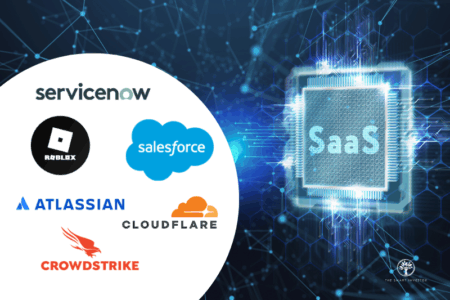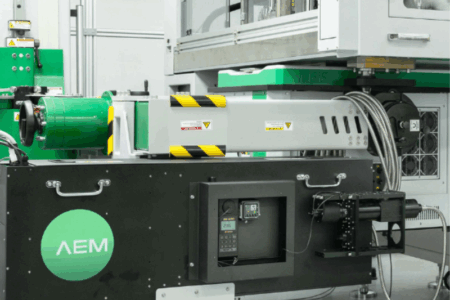THERE are warnings aplenty about the stock market’s almost unstoppable climb.
Jamie Dimon, the head of JPMorgan Chase, is just one in a growing chorus of commentators who has sounded the alarm bell on a US market fall.
He has warned of a serious stock-market correction that could happen within the next six months to two years.
The Bank of England has warned that the risk of a sharp market correction has increased.
It noted that valuations appear stretched.
It was especially concerned about artificial intelligence (AI)-focused tech firms.
The bank said that it is worried that disappointing AI capability or adoption or increased competition in AI could lead the market to consider whether these companies can deliver the high earnings expected of them.
In other words, it is worried about whether an AI bubble is forming.
The UK’s central bank is not alone.
The chair of the US Federal Reserve has warned that assets are fairly highly valued.
However, it did not specifically refer to technology firms.
There are certainly echoes of former Fed chair Alan Greenspan’s reference, during the dotcom era, of stock markets exhibiting “irrational exuberance”.
Ironically, it was four years after Greenspan’s observation that the dotcom bubble burst.
In the intervening period, the market had nearly doubled.
Will history repeat itself?
It could happen again – this time with AI.
Valuations are high and there are similarities with the dotcom bubble.
But that is missing the point entirely.
Unlike during the dotcom debacle, there are many companies today that are enjoying record levels of both earnings and cash.
They should not be holding back on investing in their business, even if it relates to AI.
Admittedly AI is still a nascent technology.
Consequently, we do not know exactly what it is capable of, even though we have a rough idea.
But not many of us during the dotcom days could possibly have imagined that the Internet would one day change our lives immeasurably.
Where would we be if some or all those companies had held back their investments?
But here’s the rub.
Just because AI is promising, it does not mean that we have to invest in it.
That is, unless we have specific knowledge of the AI industry.
Instead, we should always try to stay within our circle of competence when we invest.
If we do want to invest in AI and its related industries, then we should at the very least try to find out as much as possible about the new technology.
Know what you are buying
We should also try to resist the temptation of dipping in and out of the market, either because of the predictions of “experts”, or the natural ebb and flow of business activity.
That applies not only to AI-related shares, but also to those in other sectors that we might have in our portfolios.
I am an income investor, which means that I focus on the income that my portfolio is capable of generating.
I have some AI stocks tucked away in there.
But not enough to give me restless nights – and that is the point.
Investing should never be about being profitable every single day, every single week, month or year.
From an income investor’s perspective, it should be about generating a steady, rising stream of income.
Share prices can be volatile.
The stock market might even crash occasionally.
But that is the downside of investing in shares.
We must be prepared to tolerate any drawdowns in the market when they happen.
The upside, however, is the equity-risk premium.
This is the excess return that we can earn over the risk-free rate by investing in shares.
This premium should compensate us for taking on the extra risk from investing in the stock market.
Income investors can, at times, have their cake and eat it too. If we invest in a portfolio of shares that can collectively deliver rising dividends, then we could still enjoy the income produced even if share prices fall.
In fact, any drop in the value of our portfolio could be a good opportunity to buy more, particularly if the fundamentals of the companies are unchanged.
Don’t “dance in and out” of the market
Investing should never be about trying to second-guess where share prices might be tomorrow or the next day.
It should not be about wondering if a crash is going to happen, even if experts predict that it might.
Warren Buffett once said: “Since the basic game of investing is so favourable, it would be a terrible mistake to dance in and out of it based on the turn of tarot cards. The risks of being out of the game are huge compared to the risks of being in it.”
So, do I believe that AI will be a life-changing event in the same way that the Industrial Revolution in the 1800s was?
Would it be akin to the change in the communications landscape after Alexander Graham Bell patented the telephone in 1876?
Or, when Tim Berners-Lee changed the world by inventing the World Wide Web?
The simple answer is: I do not know.
But I will continue to invest in income shares because I know it works.
Many investors think DeepSeek lowering AI costs means less revenue for tech companies. But that’s not the full story, and believing it could cost you. In our latest free report, we unpack a surprising insight from a top tech CEO who explains why lower AI costs may actually drive more tech spending, not less — and he’s got the numbers to prove it. If you’ve misunderstood this trend, you could miss out on some of the biggest investment opportunities. Click here now to access “How GenAI is Reshaping the Stock Market” today to get the full breakdown.
Follow us on Facebook, Instagram and Telegram for the latest investing news and analyses!
Disclosure: David Kuo does not own any of the shares mentioned.





